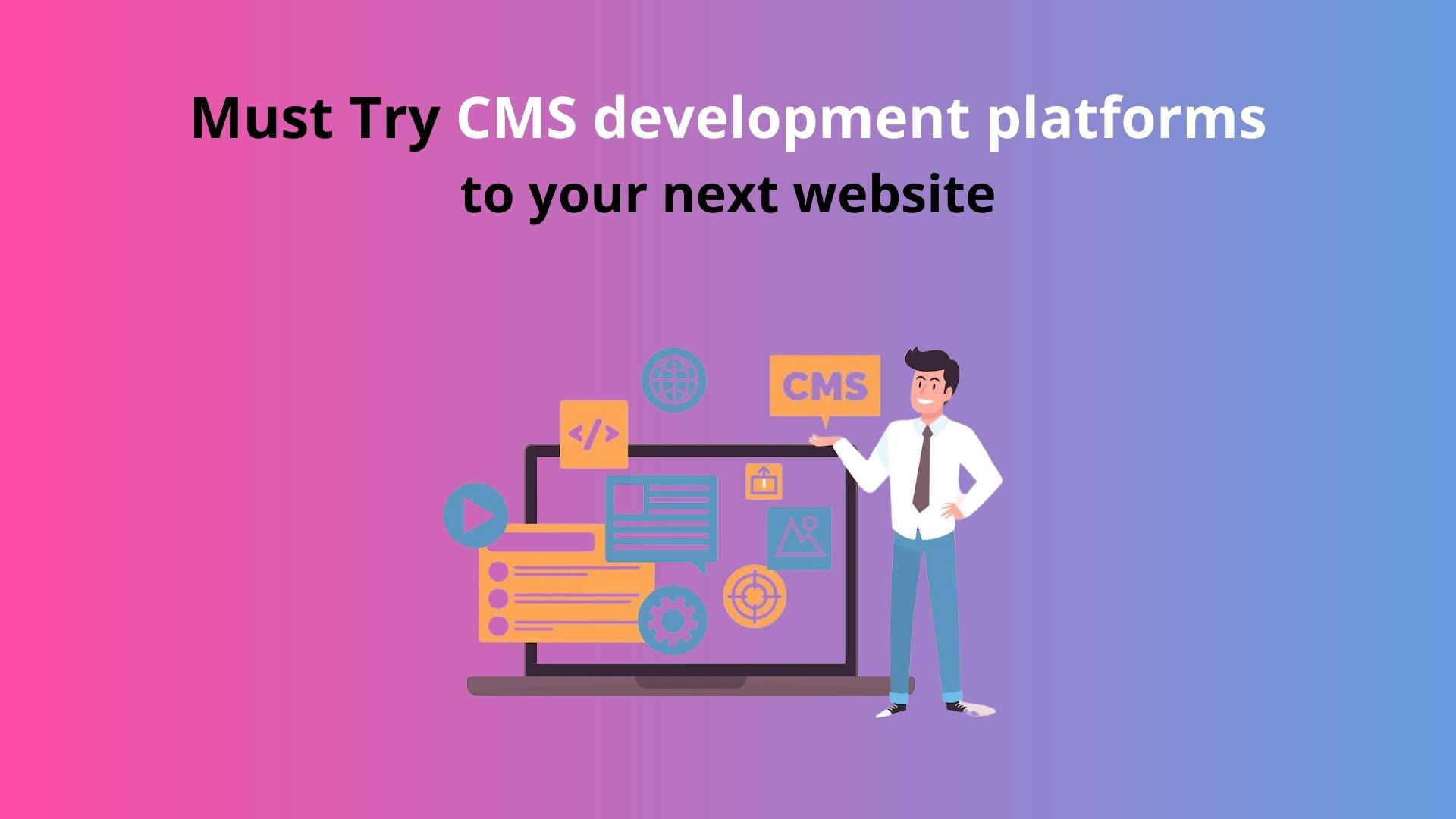Introduction
For years, website development has been a huge industry with vast growth potential. While various platforms and programming languages have come and gone over the years, one thing remains constant: the need for quality CMS development platforms. We will explore some of the best CMS platforms you can use in content creation and develop your next website in this post. So without further ado, let’s get started.
CMS stands for Content Management System. Businesses work in creating custom-built sites using the CMS platform. These design and build services help companies upload content quickly to be managed easily across different devices like desktop computers or laptops and mobile phones, tablets, etc.
What is CMS?
Content management systems are software applications that handle the basic infrastructure for websites. With it, you can focus on customizing your website design and managing content rather than worrying about technical details like coding or designing graphics.
The content delivery application will quickly and efficiently deliver the information you provide so that your users get their data when they need it most. The best enterprise content management systems can seamlessly integrate these diverse sources, so users always have access wherever they need it most effectively without hassle.
The digital marketing world has been changing at a rapid pace. Digital marketers and content management systems work hand in hand to help you create a website or online business that converts visitors into customers.
There are different types of content management systems available, but three are the most popular ones:
- Open-source: A community of developers owns and maintains the software instead of a single company. Source code is available to third-party developers, who can modify and improve the software’s functionalities.
- Cloud-based: You don’t need to download software or hardware using a cloud-based content management application. Managing web content can be done safely over the cloud and accessed from any device.
- Proprietary-based: This is very expensive and can be the legal property of a company, organization, or individual. The payment can be one-time, monthly, or can even be annual.
How to Choose the Best CMS?
The CMS system is an interface that enables users to create, update and publish their digital content. The best CMSs cater to their target audience with the right tools and functions. When you are looking for the best platform for your business needs, consider the following:
- Cost ‒ Always check if it’s budget-friendly and suitable.
- Scalability ‒ Check the extensions and plugins to know how well this solves your purpose of growing using this platform.
- Ease of use ‒ Ensure you have the right one depending on your skill level. Some platforms are steeper learning curves than others.
Freepik
WordPress
The most popular CMS is WordPress, and it has over 42% market share among its competitors. It’s used by some big names like The New York Times and BBC America to create professional-looking websites with ease.
With this tool, you can easily post new pages or updates on your site without any hassle – making WordPress extremely convenient for visitors and writers who want an easy way of publishing their work online quickly. In addition, WordPress is an excellent tool for formatting your content, and it is less expensive when compared.
Joomla
Joomla comes second. Joomla is an open-source content management system that enables users to develop and build engaging websites without having any technical skills. It may not be as beginner-friendly compared with WordPress.
Still, it offers several unique features which make it valuable for professionals in web development industries who need customizable templates with great performance rates across various devices they work on every day. It comes with multilingual support, it’s easy for your users worldwide to speak their preferred languages with ease.
Drupal
Drupal is a great content management system example because it was developed with the needs of website developers in mind. It has all the necessary features and provides more security than other platforms like WordPress or Joomla.
It is an excellent choice for business websites that need scalability to handle their increasing traffic loads without getting overwhelmed by hackers trying to break into your site.
Magento
Magento is a powerful, versatile eCommerce platform that can help you create any store imaginable. With its robust feature set and SEO-optimized codebase, more companies are turning to this software for their online needs.
When catering to larger online stores, the Magento platform is powerful enough for a high number of products and orders. A large eCommerce store using this software would be Olympus which sells cameras, audio equipment, and binoculars.
Freepik
Concrete5
Concrete5 is a minimalistic, easy-to-use content management system that makes it simple for anyone with little technical knowledge. It has secure user management and customizable drag & drop blocks which allow you the freedom of creating your website without limitations on what’s possible.
This CMS platform is perfect for businesses with many products and services they want to offer online. For example, the broadcasting company ITV also provides videos on their website to attract more viewers to look at different types of entertainment content all day long.
Conclusion
So, these are some of the top CMS development platforms that you can use for your next website. Each forum has its advantages and disadvantages, so choosing the one best suits your needs is important.
Don’t forget to research before you get on board because results are important. If you’re looking to build a website that will help you reach your business goals, contact our team. Start exploring and see what amazing things you can create.

A fun-loving, creative, and passionate writer. Experienced as a curriculum writer for kids at CompuSkool (Information Technology) written interactive learning materials that engaged young minds between 3 to 17 year olds across different technology areas. After a break from writing, now pursuing passion through blogging. Now a technical writer at Squash Apps. Waiting for the future to reveal itself as days unfold.


